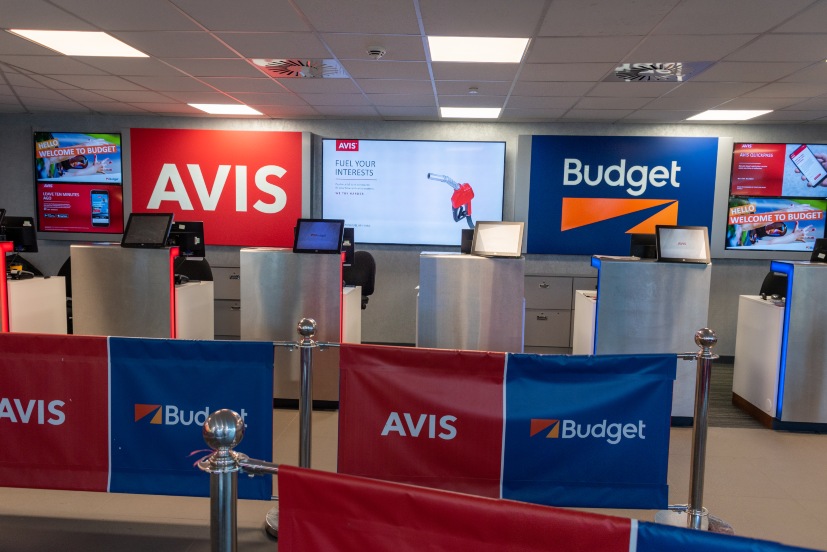Recommended Suggestions On Choosing A Car Rental Site
Recommended Suggestions On Choosing A Car Rental Site
Blog Article
How Can You Tell If You Have Booked The Car For The Right Time?
It's important to take into account your travel itinerary when you determine the duration of your rental. Here's how to determine the appropriate rental duration: Travel Itinerary: Review your itinerary for travel to determine the length of time you'll require the rental car. Consider factors such as how long you'll be traveling, where you want to travel, and if there are any planned events or events planned. If you are planning to stay or travel in only one place, take into consideration the duration the rental period will be.
Calculate the time you will spend on activities, sightseeing and outings. Include the time it will take you to get from the hotel or rental car to the attractions. Additionally, consider any detours and planned stops along the route. You must decide if you'll need an automobile rental for the entire duration of your trip, or only for a few days.
Flexibility: Consider allowing the flexibility of your rental time in case of unexpected delays, changes to your schedule or unexpected activities. It's best to have buffer time in case your plans shift rather than having to rush or incurring additional charges for extending your rental in the last minute.
Drop-off Location: If you are planning a one-way trip or returning the vehicle to a location that is different from the place it was picked up, make sure you include additional time for drop-off arrangements. Check with your rental company's policies regarding one-way rental car rentals. Also, inquire about any fees or limitations.
The cost of renting a car on holidays or special occasions can alter the availability of vehicles, rental rates, and the minimum rental period. It is recommended to book your rental earlier, especially during peak periods, to guarantee your preferred dates and car.
To determine the most economical option, compare the rental rates for different lengths of time. In some cases, renting for a longer time, such as for a week or more could result in lower rates per day compared to shorter rentals. But, you should avoid renting longer than is necessary in order to avoid paying for unused days.
Through analyzing your plans for travel, activities, flexibility requirements, drop-off options, and cost considerations you can choose the ideal length of rental time. View the recommended continue reading this about Worldwide car rentals for site examples including near me rent a car, car in rent near me, rental cars in my area, rent a car luxury car, exzotic car rental, vehicle rent, rent out car, rent our car, rent out car, hire car to airport and more.
What Can You Do To Check The Vehicle For Indications Of Damage?
To ensure that you are not held responsible for any pre-existing issues upon return and to avoid being held accountable for any pre-existing issues, you must check the rental vehicle prior to accepting. Here are some steps you can follow to ensure a thorough car inspection:
Examine the body's exterior of the vehicle for damage such as scratches, dents and other damages.
Pay attention to bumpers, doors and fenders. Additionally, pay particular attention to mirrors.
Check the windshields and windows for chips, cracks or other damages.
Find leaks in your vehicle or evidence of damage.
Interior Inspection
Open all the doors, including the trunk and then check the inside of your car.
Check the seats for scratches and stains.
Test all seat adjustments including the driver's seat to ensure they are functioning correctly.
If you find any damages, you should check the steering wheel and dashboard.
Examine the health of the air conditioning, heating, and ventilation systems.
Test your audio system as well as turn signals, lighting as well as other electronic components.
Functional Inspection
Start the vehicle and then check the dashboard for error or warning messages.
Test your brakes, the accelerator, and the clutch (if appropriate) for confirmation that they're working properly.
Verify that the brake lights turning signals, headlights and high beams are working correctly by turning them on.
Test the windshield wipers, washer fluid, horn, and the emergency/parking brake.
Document any Damage
Use a rental agreement form that is provided by the rental company or a smartphone app to document any existing damage or issues.
Photograph or record videos of your car from various angles, and focus on areas of signs of wear and wear and tear.
Notify the area the size, extent, and type of damage for each scratch, dent, or other damage.
If you discover any damages or damage, contact the representative at the rental car company prior to accepting the car.
Report Damage
Instruct the rental agent of any problems or damages that you found during your inspection.
It is important that they record any damage to their documents. Also request a copy of the report of inspection.
Ensure that both you and the representative from the rental company complete the rental agreement or the inspection report to acknowledge the damage that has occurred.
You can stay out of the risk of being held accountable through these measures, and thoroughly inspecting the vehicle for any signs of wear or damage before accepting it.
What Do You Need To Be Aware Of When It Comes To The Fuel Policy Of A Rental Company?
Knowing the rental company's fuel policy is vital to avoid additional charges and make sure that the return process is smooth. This is how you learn about the policy on fuel. Review the rental agreement Be sure to read the rental contracts provided by rental firms. This document will usually outline the fuel policy, which typically is included in the section called "Fuel Policy," or "Refueling."
Make sure you read the terms Check the terms and conditions to determine if there are any specific details about the fuel policy. This includes whether you must return your vehicle with a full tank of gasoline, or if the tank was purchased at a specific price, or if refueling charges apply.
Questions Rental Company Representatives. If the fuel policy contained in the rental contract is unclear or you have any questions you might have, do not hesitate asking the rental company representatives to clarify. To learn more regarding their fuel policies, you can contact the customer support department at the rental company via either phone, email or live chat.
Full Tank Requirement: Some rental companies require that you return the vehicle with a fully fueled gas tank to avoid additional charges. Fill up your tank at the nearest station to avoid charges for refueling. The receipt of fuel proves that you refueled the car.
Pre-Purchase Option Certain car rental companies provide the option of purchasing the full tank of gasoline at a predetermined price when you collect your car. This way, you can return your car at any level of fuel without paying for refueling. Unused fuel may not be reimbursed.
If you do not pre-purchase fuel and return your car with less gas than the full tank the rental company may charge you for refueling the vehicle. This charge typically includes the cost of fuel, plus an additional service fee, which can be significantly greater than the local gasoline costs.
Understand Penalties. Know about any administrative or fines costs that come with the fuel policy and the inability to comply with refueling. Understanding these fees in advance can help you avoid being surprised by unexpected charges at the time of returning.
Plan ahead. Based on the fuel policy of the rental company and the itinerary, you need to think about your refueling strategy accordingly. Consider the time needed to find the nearest gas station and fill up your tank before returning the car to reduce the cost of refueling.
If you know the rental company’s fuel policy and adhere to its rules and guidelines, you will avoid unnecessary charges and enjoy the rental return process as smooth as possible.